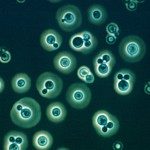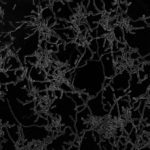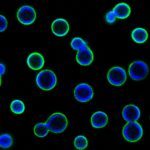Congratulation to Guihem Janbon, Iuliana Ene and Alexandre Alanio (Department of Micology) whose project “ResistEV” will be financed by the Agence National de la Recherche in its 2021 Projet de Recherche Collaborative call.
Defining the roles of extracellular vesicles in antifungal drug Resistance across major human fungal pathogens.
Fungal diseases have been consistently neglected despite their astonishing impact on human health. There are no effective vaccines available against these diseases and the arsenal of antifungal molecules is restricted to only four classes. Fluconazole (FCZ) is the most commonly used antifungal molecule although it can be associated with the development of resistance/tolerance. In recent years, several molecular mechanisms of FCZ resistance have been described in fungi, including mutations of the FCZ target (Erg11) and increased expression of drug efflux pumps. Recent studies suggest a link between vesicular trafficking, production of extracellular vesicles and azole susceptibility. All fungal pathogens can produce extracellular vesicles (EVs), but the roles of these extracellular organelles remain poorly understood. We identified four transcription factors regulating EV production in Cryptococcus neoformans. Interestingly, these regulators also impact azole resistance, suggesting a role of EV production in responses to azole drugs. We hypothesize that EVs play key roles in antifungal resistance and propose to test this in major pathogens such as C. neoformans and Candida albicans. We propose to define the biosynthetic pathways regulating EV production and understand the mechanisms by which EVs contribute to virulence, interactions with phagocytes and azole resistance in both fungal species. Finally, we will characterize the emergence of azole resistance in clinical isolates of both yeasts in order to determine whether mutations in EV biosynthetic pathways mediate the emergence of resistance in clinical contexts. This work has the potential to address a large gap in our understanding of fungal cell biology as well as characterize a novel mechanism of azole resistance.





